

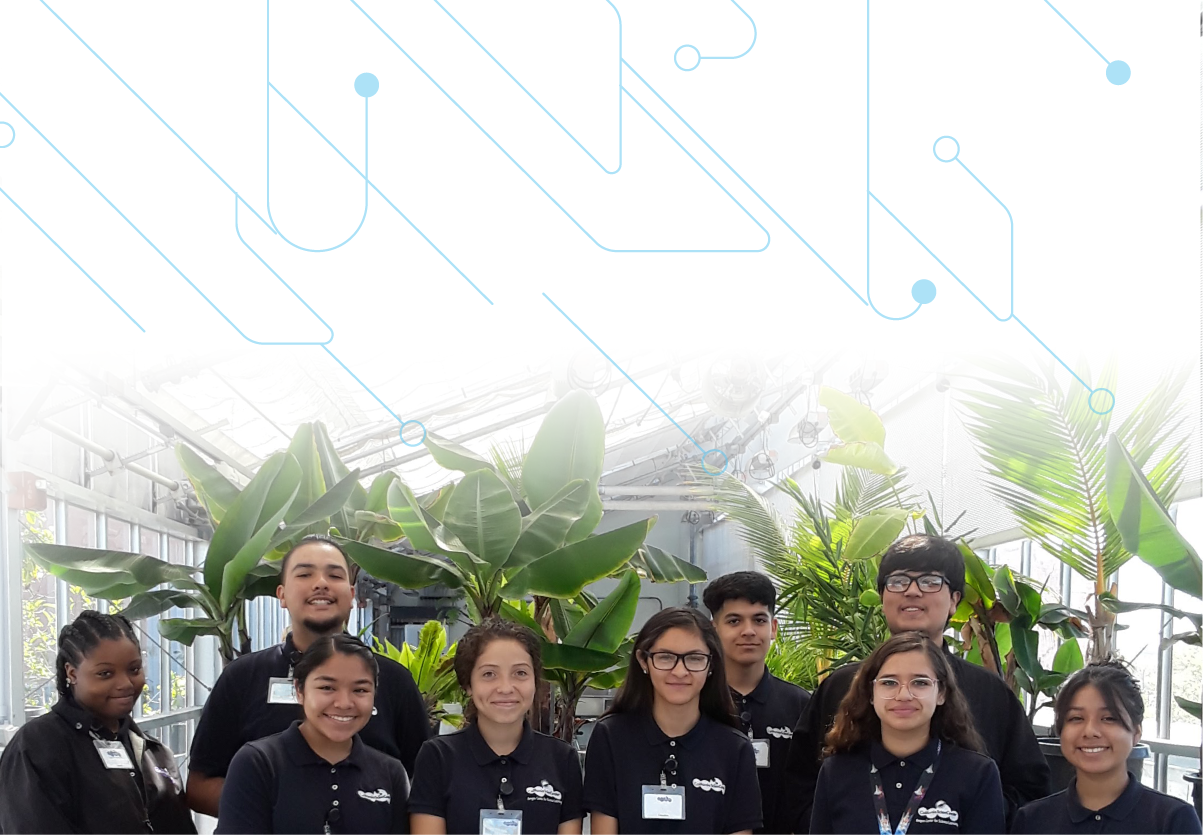
What is Roads Taken?
The Roads Taken project brings together representatives from long-standing youth programs, experts in out-of-school-time youth programming, and researchers to collaboratively explore the long-term (15-25 years) impact of
STEM-focused, intensive (80+ hours/year), multi-year programming.... This five-year research project uses an explanatory sequential mixed-method design to carry out four steps: (1) identify and describe the impact on the lives of program alumni/alumnae who are now ages 25 to 45; (2) identify causal pathways from program strategies to long-term outcomes; (3) develop an understanding of these pathways from the perspective of the people who experienced them, and (4) disseminate this knowledge broadly across agencies that sponsor this type of STEM-focused programming. Through a collaborative process with program leaders and the alums, researchers will identify long-term program impacts on education and career pathways, attitudes toward STEM and informal learning activities, and other life choices. Check out our About Us page to learn more about our Leadership Team, advisors, and the six partner programs that carry out this project. Roads Taken is funded by the National Science Foundation (NSF). Our official name and number are Roads Taken: A Retrospective Study of Program Strategies and Long-term Impacts of Intensive, Multi-year, STEM Youth Programs Award #1906396.
Read
More
Project Timeline
The Roads Taken Research project officially began on October 2019 as a four-year project. In fall 2022 (after COVID lockdowns, methods updates, and revising our work plan), we requested a one-year extension. See our research page to learn about the questions we are exploring and the methods we use to answer them.

Resources
Informalscience.org
Search of all Roads Taken
Roads
Taken Dropbox
Find presentations, handouts, reports and more
Proposal
Information
About
the NSF AISL Program
Develop Projects,
Discover Research and Design Evaluation
Social Media Feed
Who We Are
We designed the Roads Taken project structure to ensure that diverse voices influence our research. Our research is guided by a team of experienced researchers with various experience and expertise. Groups include youth program leaders, program staff members, and youth program leaders from outside the museum field. All groups meet regularly on Zoom.
The Principal Investigator (PI) and Co - Principal Investigators (Co - PIs) guide the project so that all participants’ voices are included. The Leadership Team works with four groups: the Cabinet, Alum Liaisons, the Research Oversight Group, (ROG), and the Program Advisory Group (PAG).

Deborah brings to the project extensive experience in human services, visitor studies, and youth development program evaluation; not-for-profit management; organizational development; and program implementation in the performing arts, journalism, and health care. She applies a long-standing commitment to centering typically marginalized voices in the program evaluation process to each of her projects. With NSF funding (# 1810778, #1906396,#2039209), her research focuses on self-determination theory-based program evaluations. Deborah received a Ph.D. in Family Science from The OhionState University, where she has also taught child and adolescent development. For Roads Taken, Deborah leads the Phase 1 research, oversees the Research Oversight Group, and serves as PI to provide project oversight.
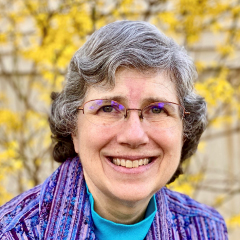
Kit has provided STEM education research and evaluation services to youth programs for over 25 years to support efforts to inspire and motivate learning out of school. She evaluated some of the programs that grew out of the ASTC Youth-ALIVE! Initiative, which led to the larger Roads Taken effort. Kit and Carey coordinated the initial Roads Taken conference as part of that effort (NSF # 1644479). Kit earned a Ph.D. in educational research from Washington University in St. Louis, which led her to research museum schools and youth programming in informal science education settings. In this current Roads Taken research project, Kit’s role as Co-PI includes project management, overseeing the questionnaire pilot, leading the resumé analysis, co-leading the Phase 2 research, and leading the Program Advisory Group.

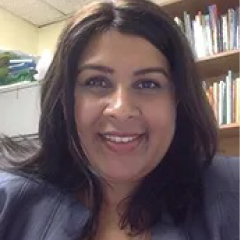
Priya has been with the New York Hall of Science for 21 years, starting as an Explainer – a floor facilitator – and working her way up to lead NYSCI’s youth development initiatives. Priya’s experience as an Explainer shaped her outlook on making STEM education exciting for youth. In July 2014, Priya became the Director of the Alan J. Friedman Center for the Development of Young Scientists. As the current Senior Vice President of Youth Development and Museum Culture, Priya continues to lead the development and research of programs and activities that allow youth across NYC to see STEM as a potential career pathway. In addition to her work at NYSCI, Priya sits on the Association of Science-Technology Centers’ Equity and Diversity Committee. Priya is a facilitator for ASTC’s Diversity and Leadership Development Fellows Program. She serves as Co-PI, taking the lead focusing on connections with project partners, helping with dissemination activities, and co-leading the Cabinet.

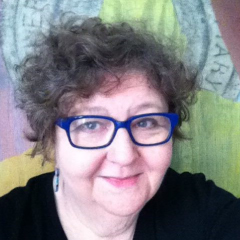
Carey brings experience as an internal and external evaluator in the STEM informal learning context. Evaluation experience with STEM youth programming includes the evaluation of Museum Tech Academy (NSF#0423836), which engaged youth (12-17 years old) in technology and archeology project-based learning. She also worked on the St. Louis Science Center’s Office of Naval Research grant with Kit Klein in the Youth Exploring Science (YES) program at the St. Louis Science Center. Carey founded Tisdal Consulting in 2002, working with museums across the U.S. From 1992 to 2002, she served as the Director of Research and Evaluation at the St. Louis Science Center. Carey has a Master’s in Instructional Technology and a minor in Program Evaluation from Indiana University, Bloomington. Carey serves as Co-PI, taking the lead on the qualitative research aspects of the project, managing dissemination activities, and co-leading the Cabinet.

Cabinet Members Cabinet members recruit and hire part-time Alum Liaisons and find an advisor with historical information about their program. They also provide information about their programs, review research protocols, and assist with dissemination.
Alum Liaisons hold positions at each partnering institution to serve as the interface between the project and the alums. Liaisons attended online training conducted by project leaders, participated in monthly calls with project leaders,identified current contact information for those alums, maintained a record of contact information, and collect alums’ resumés.
California Academy of Sciences

Program: Careers in Science Intern Program
Careers in Science (CiS) is a multi-year, year-round paid internship and youth development program for San Francisco high school students who come from communities historically excluded from science, technology, engineering, and math (STEM) fields. CiS increases the diversity of the STEM workforce. It aims to change stereotypes surrounding STEM participation by providing opportunities for interns to immerse themselves in the natural world, develop life and job skills, receive college and career mentorship, and learn science and sustainability concepts in an authentic and safe work environment. Interns learn, teach, and do science alongside professional role models and mentors who are leaders in their disciplines. The program targets highly motivated youth for whom the program’s guidance and support would make a critical difference in pursuing a higher education degree and career in a STEM field.
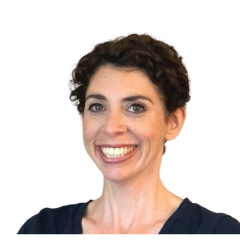
Laura Lerman has worked at the California Academy of Sciences since 2013, serving as Director of Expanded Learning and Youth Engagement since 2018. With more than 20 years of experience in museums and education, Laura leads the design and expansion of youth - serving initiatives that foster a more scientifically literate, socially just, and civically engaged society. Her portfolio includes a ward - winning programs for middle and high school youth that integrate STEAM learning, workforce development, and environmental action.
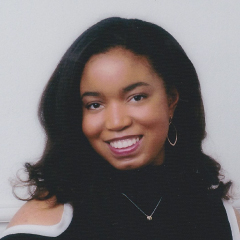
Jazara participated in the Science Intern Program from 2016 to 2018. Later, she worked in the program as a Youth Advisor. Jazara is currently a student at the University of California, Berkley. She is majoring in marine science with a minor in theater.
Chicago Botanic Garden
Program: Careers in Science Continuum
The Chicago Botanic Garden’s Careers in Science Career Continuum offers a multifaceted program pathway that engages Chicago Public School students in authentic scientific research and mentors them from middle school through college. Features of the program include using the Garden’s natural environment as an entryway to STEM, scaffolded age-appropriate programming, and the opportunity to conduct real-world scientific studies. The program offers three levels of programming; Science First, College First, and undergraduate internships. Science First engages rising eighth- through tenth graders in two month-long sessions of classroom activities, outdoor inquiry-based learning, and field trips. Teams design and carry out experiments and present results. College First engages juniors and seniors in a paid eight-week internship, including mentoring, a project-based college-level environmental science course, and field trips exploring environmental concerns, careers, and higher education planning. Students complete and present an independent research project. All undergraduate interns serve as mentors for younger students, gaining teaching and leadership experience and serving as role models.
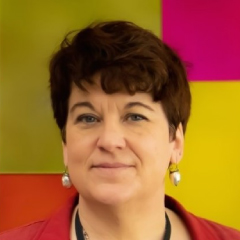
Katherine (Kathy) uses her master’s degree in museum studies and thirty years of experience running science-focused educational programs in museums and public gardens to serve the Chicago community. Programs under her direction serve youth, children, families, schools, and teachers. Her skills in program development, promotion, delivery, evaluation, and management, including hiring and leading staff, budgeting, long-range strategic planning, grant funding, and marketing; experience working with exhibit designers and professional evaluators, help to increase the impact of the Chicago Botanic Garden as a valuable community resource.
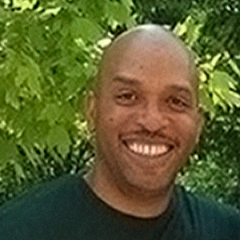
As a former program leader at the Chicago Botanic Garden, William brought his relationship with alums and passion for horticulture to his role as Alum Liaison. Currently, William operates his company, Get Out and Grow, with a mission to “educate and inspire more people to interact with nature and their communities to enhance their health, connectivity, and joy!”
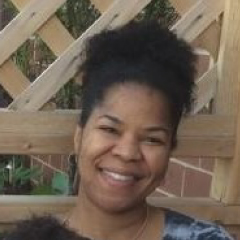
Working with William as an Alum Liaison, Natasha contributed her excellent organizational, computer, and communication skills to track alum contacts and the data collection process. Her role in organizing accurate, usable data to share with the larger project was essential.
California Science Center
Program: The Community Teen Intern Program
The Community Teen Intern Program provides high school students from the low-resource surrounding neighborhood work experience while learning science. To develop employment skills, interested high school students submit applications and undergo job interviews before joining the program. The program is designed as a ladder system; interns are retained from program year to year, barring any significant behavior or performance problems. The program is divided into levels based on grade level, with duties building with experience. Life skills workshops are assigned by grade level, focusing on college readiness, self-sufficiency, and workforce preparedness. Interns develop their work and public speaking skills by assisting staff in the instruction of middle and elementary school-aged programs and interacting with the general public in the California Science Center's exhibits.
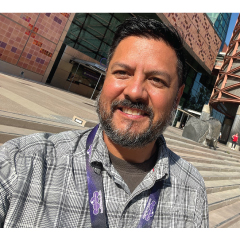
Norbert has been at the California Science Center for nearly 20 years, managing and directing multiple education programs and projects in the Education department. Primary responsibilities include providing programs to community-based organizations and youth development programs for local community teens.
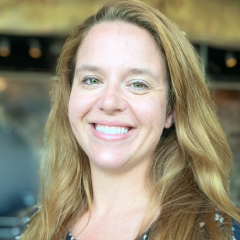
Kristen served as a Cabinet Member before accepting the Associate Director of Education position at MOXI, The Wolf Museum of Exploration + Innovation in Santa Barbara, CA. Before leaving, she was the Manager of Community and Exhibit Programs. Kirsten began her tenure at the California Science Center in 2010 as the Community Teen Intern Program supervisor, adding deep perspectives to her role.
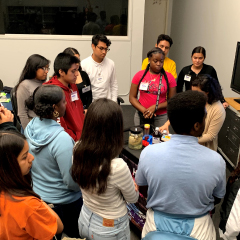
He Sung serves as the Community Engagement Coordinator at the California Science Center. She first started working at the Science Center in 2021. Her current focus is on programs for local middle school students at community-based organizations, bringing hands-on science to them weekly. He Sung will start a new position at the Audubon Center at Debs Park in August 2023.
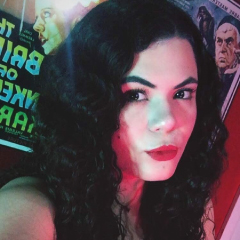
From 2006 to 2007, Marina worked as a Learn-2-Earn intern at the California Science Center, so she knows firsthand how these types of programs impact youth. Marina served as an Alum Liaison at the California Science Center during the project's first year. Marina left to take a full-time position as the SmartStart & Scientific Arts Program Coordinator position at Heart of Los Angeles. Her career focuses on including otherwise marginalized voices to heighten the representation of historically peripheral communities.
Natural History Museum of Utah
Program: Youth Teaching Youth Program (YTY)
The Natural History Museum of Utah’s Youth Teaching Youth Program (YTY) offers instructional and mentoring opportunities for middle and high school students from Salt Lake City’s Glendale Middle School community, where the student body is one of the state’s most ethnically diverse and economically challenged. Students apply to and are admitted to YTY in middle school, and many stay with the program through high school graduation. In weekly afterschool meetings, middle school students are trained by YTY high school students and Museum staff to teach various process-focused science outreach programs to 4th graders in their community. As YTY participants move on to high school, Museum staff and University of Utah scientists mentor them. They develop workforce readiness skills, gain STEM-oriented experience, and expand their long-term educational and professional opportunities. Throughout their course of involvement, YTY participants also engage in field-based research, develop curriculum, and participate in statewide field trips.
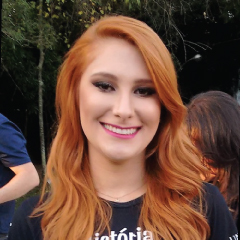
Mariana started her position as Youth Program Manager in August of 2022. She is fluent in English and Portuguese and conversant in Spanish. Her background includes roles in education and academic research, with experience organizing events, especially developing experiences related to the natural world and cultures. Before accepting her current position, she worked with the Museum on the Move team. This inquiry-based program provides 4th-grade students with experience working as scientists and investigating museum specimens, fossils, and artifacts.
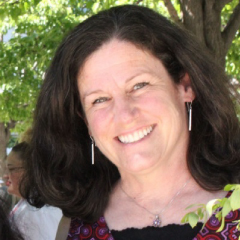
Linda served at the museum for 18 years as the manager of Youth Development programs. Linda received a Master of Education degree from Lesley University. She left her position at the Museum of Natural History of Utah to accept another position of Administrative Coordinator at the University of Utah - David Eccles School of Business. The Roads Taken project benefited from her incisive thinking, effective communication, and organizational skills.
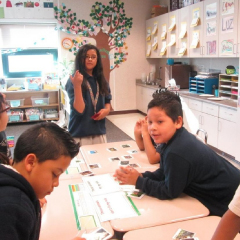
Jamie Nash kicked off the organization of historical records and contacted program alums. Jamie had participated in the YTY program and used her relationships with alums to find contact information and collect data effectively.
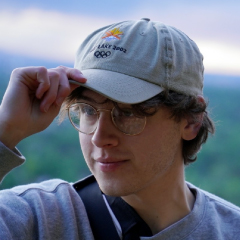
When Jamie left her Alum Liaison position, the job fell into the capable hands of Alum Liaison Cayden Turnbow. Cayden used his impressive organizational skills to locate and contact alums. Cayden is a student who specializes in film at the University of Utah. Previous work experience included serving as a guest services intern at the museum.
New York Hall of Science
Program: Science Career Ladder
NYSCI’s Science Career Ladder engages high school and college students in meaningful work experiences while exposing them to various STEM career and college pathways. The SCL’s flagship offering, the Explainer program, employs Explainers to work on NYSCI’s museum floor. These young Explainers interact with the public and help visitors to understand the science behind NYSCI’s exhibits and demonstrations. The Science Career Ladder program runs through the Friedman Center for the Development of Young Scientists.
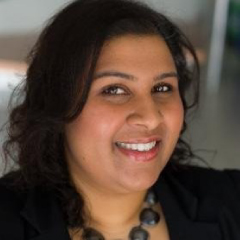
After COVID-affected staffing at the New York Hall of Science, Priya served as Cabinet Member in addition to in her Co-PI role. She assembled a large team, including the two Alum Liaisons and many program managers and participants who took on Roads Taken tasks along with other work.
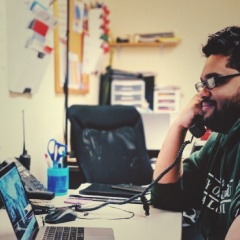
Danny serves as the alum coordinator for the Science Career Ladder, where he helps Explainers learn about the modern workforce and its needs. He started working in the program in 2016 and has created and facilitated various workshops in addition to organizing our Roads Taken data collection.
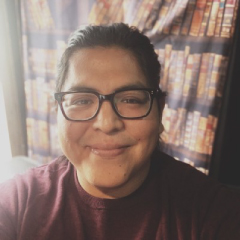
As Manager of the Science Career Ladder since 2000, Emilio helps recruit, manage, and train youth on museum policies and connect them with the resources to further their growth. As a former participant of the program, he knows firsthand the impact of a program like the Science Career Ladder.
Science Museum of Minnesota
Program: Kitty Anderson Youth Science Center (KAYSC)
Over the past two decades, the museum’s Kitty Andersen Youth Science Center (KAYSC) has developed a pathway that supports the leadership development of young people ages 11–25 with the mission of empowering youth to change our world through science. We accomplish this by connecting STEM and social justice education with on‐the‐ground projects that lead to positive social change. Our goal is for young people participating in the KAYSC’s middle school, high school, and post‐secondary programs to grow into socially conscious, civically engaged citizens. actively building opportunities for themselves and others.
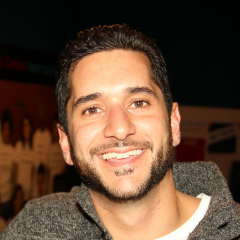
Joseph Adamji has worked in the KAYSC since 2009 as a youth worker, program manager, and Director and helped build the KAYSC’s STEM Justice approach. He currently serves as the Director of the Science Museum of MN’s Center for Equity Systems Change. This Center includes the Kitty Andersen Youth Science Center (KAYSC) and the IDEAL Center (Inclusion, diversity, equity, access, and leadership). The Center leads workforce development and professional development on IDEAL and creates bridges between families, community efforts, organizations, educators, institutions, and opportunities. They work to build a cross-sector “STEM Justice Ecosystem” to bring inclusion and the experiences of women, youth of color, and youth from low-income communities to the center of conversations on workforce development, career pathways, education, and leadership in the 21st century.
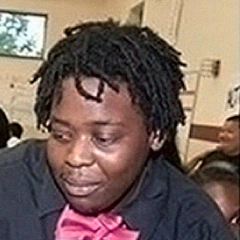
Rich has over 15 years of experience with youth work. He served as a youth participant, program coordinator, program developer, youth program evaluator, program instructor, and national and local youth development trainer. Rich now serves as the Internship Program Manager, developing and curating work development and community engagement experiences for young adults.
The Research Oversight Group (ROG) includes researchers advising the Roads Taken research process decisions. The ROG reviews instruments, protocols, and analysis plans; ensures that the project remains focused with knowledge-building activities; reviews results; and provides annual reports to NSF. Their work includes ongoing email communication, review of design documents and data collection protocol, participation in online meetings to guide and oversee the research and providing a critical overview of the project. Group members provide a wide range of skills and experiences.
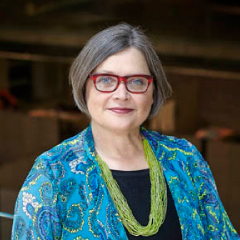
Judith brings over 25 years of experience leading museums to a more inclusive approach. Key strengths include integrating field and organizational visitor research into evidence-based decision-making and creating innovative solutions that can be measured for efficacy and impact. She serves as chair of the ROG.
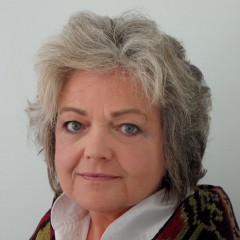
Mary Ellen served as research advisor to a collaborative of contemporary art museums exploring the long-term and continuing impacts of teen programs. She brings over 30 years of experience in museum education, administration, evaluation, and professional service to the tasks museums face as they work to maximize their public value.
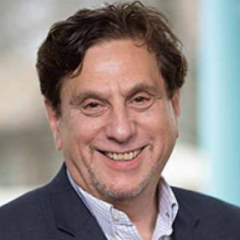
Gil brings experience with statewide afterschool networks and large-scale collaborative projects with practitioners, researchers, and funders. His research experience includes longitudinal studies. He developed the Dimensions of Success (DOS) tool to measure quality indicators of STEM programming in OST and the Clover Model, a developmental process theory.
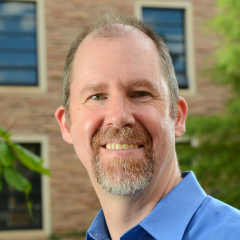
Joe brings research experience on how youth learn and develop identities in project-based learning environments at museums, community programs, and schools. He has developed and studied programs involving STEM outreach and engagement, community science, and data journalism.
The Program Advisor Group (PAG) meets online annually to ensure we produce information relevant to the larger youth programming group of practitioners. The PAG members contribute ideas and insights to the larger research agenda. Members also provide various lenses to recommend conference presentations and other dissemination activities.
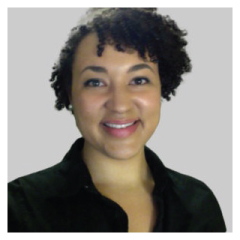
As a dissemination partner, Melissa brings knowledge and expertise in STEMM learning networks, programming, public policy, research, and promoting diversity, equity, and inclusion. As Director of Programs at ASTC, Melissa leads a team working toward supporting ASTC members in equitable engagement in STEM. Along with Shannon Sullivan at ASTC, she advises where to share information about the Roads Taken research project. Melissa and Shannon also support the development of an ASTC webinar scheduled for the summer of 2024.
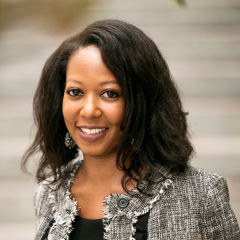
Lauren currently works in the field of research administration. Her office secures and maintains a portfolio of federal and private grants at CLU, a Hispanic-Serving Institution. Previously, she conducted research and evaluation at the Science Museum of Minnesota, which provides her unique insight into Roads Taken partner programs.
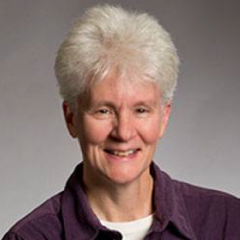
Georgia specializes in research and evaluation of youth development programs, settings, and learning experiences. She serves as the Principal Investigator on NIOST’s Technical Assistance Partnership with the Massachusetts Department of Elementary and Secondary Education 21st CCLC Program and NIOST’s study of Girls Excelling in Math and Science (GEMS) funded by the McElhattan Foundation.
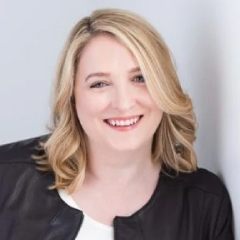
Wendy Hancock served as PI on the Roads Taken Conference project that helped us collect insight from youth program leaders and shape the Roads Taken research project. Serving as a dissemination Partner at ASTC, Wendy shared her expertise in various dissemination activities and engaging ASTC members in online and in-person events.
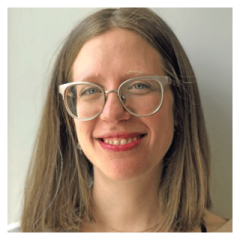
Bringing her expertise in STEM programming and the ASTC community, Shannon serves along with Melissa Ballard, a dissemination partner. Before her current position, Shannon was also a Project Manager at the Center for the Advancement of Informal Science (CAISE). Shannon's broad experience across the museum field provides a rich source for developing dissemination strategies and products. Melissa and Shannon also support the development of an ASTC webinar for the summer of 2024
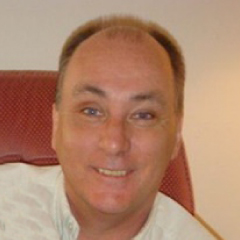
Bob works with 4-H programs locally and nationally. He brings experience and connections with 4-H and other extension programs to the Roads Taken project. His research focuses on current methodology and best practices in Agricultural and Food Sciences, Instructional Technology, and Educational Design for informal learning environments.
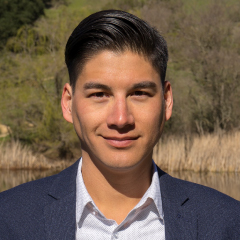
Neal brings expertise in locating alums through his prior work at the California Academy of Sciences. He currently leads organizational efforts to broaden audiences, serve community needs, and include many voices in the work of the Sonoma Land Trust. Neal assisted with Roads Taken Alum Liaison training.
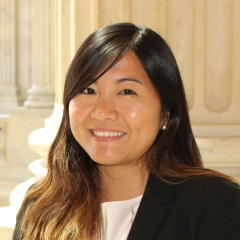
Nikki coordinates, manages, and advances the Afterschool Alliance’s research efforts to communicate the needs and successes of afterschool programs. In addition to serving as an advisor, she coordinates project dissemination activities with the Afterschool Alliance staff.
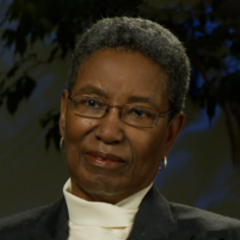
Founder of the YouthALIVE! Initiative at the Association of Science-Technology Centers DeAnna is the project’s informal advisor with great insights and wisdom in STEM programming for underserved youth in informal learning environments.
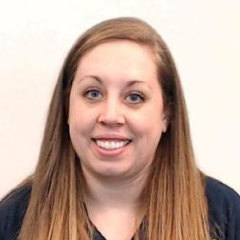
Jessica serves COSI CRE’s sponsored project officer, provides business management, and assists with project dissemination.
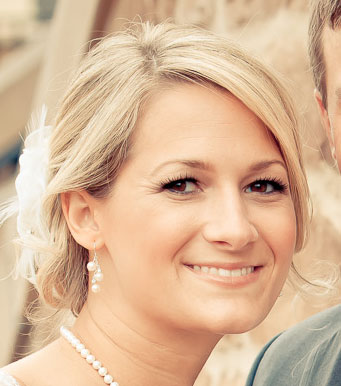
As COSI's Website Manager, Kristan implemented the design of the Road's Taken website and provided user experience, optimization and other website performance recommendations.

Dr. Wasserman is principal investigator of the Roads Taken project.